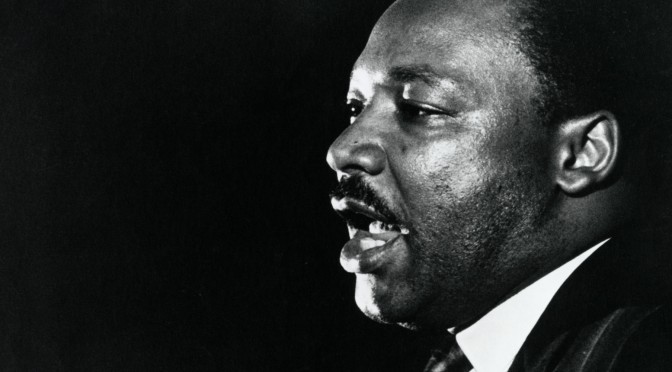Martin Luther King, Jr. is a figure often overshadowed in critical theory. Juxtaposed next to other civil rights figures like Malcolm X and Angela Davis, King is often conflated with neoliberal multiculturalism the failure of the civil rights movement to dismantle the ongoing systemic white supremacy of the status quo.
But what may be of interest to many is King’s deep interest in continental philosophy. As Nolen Gertz writes on his blog,
“…Beneath his views on race and oppression lies a philosophical schooling that began at least in graduate school, during which time he took courses at Boston University and Harvard on not only the History of Philosophy and the Philosophy of Religion, but also a yearlong seminar on Hegel.”
Gertz came across King’s extensive notes on a hodgepodge of philosophical figures on the King Center’s extensive archives. A quick search reveals scribblings, essays, and speeches about thinkers like Nietzsche, Sartre, Marx and Kierkegaard.
In his essay entitled “Pilgrimage to Nonviolence,” King recounts reading the work of Kierkegaard, Nietzsche, Jaspers, Heidegger and Sartre.
“These thinkers stimulated my thinking,” King writes, “while questioning each, I nevertheless learned a great deal through a study of them.” “I became convinced that existentialism,” he continues, “in spite of the fact that it had become all too fashionable, had grasped certain basic truths about man.”
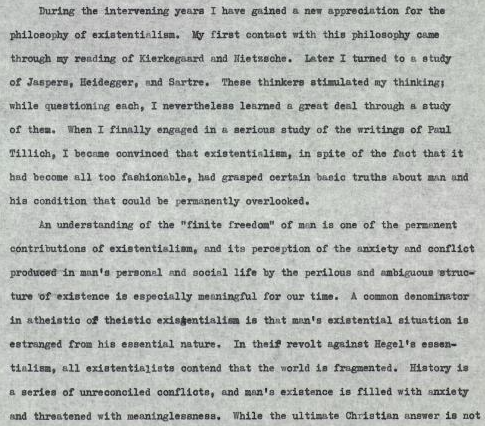
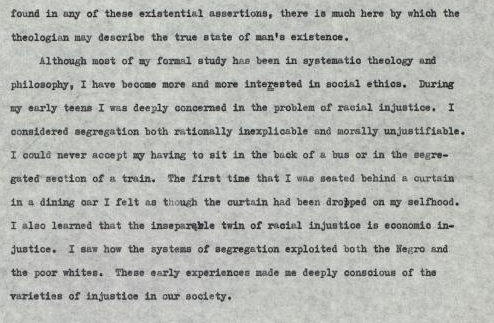
In his autobiography, King discusses the importance of Hegel in his philosophy.
“Just before Dr. Brightman’s [King’s advisor] death, I began studying the philosophy of Hegel with him. This course proved to be both rewarding and stimulating. Although the course was mainly a study of Hegel’s monumental work, Phenomenology of Mind, I spent my spare time reading his Philosophy of History and Philosophy of Right. There were points in Hegel’s philosophy that I strongly disagreed with. For instance, his absolute idealism was rationally unsound to me because it tended to swallow up the many in the one. But there were other aspects of his thinking that I found stimulating. His contention that “truth is the whole” led me to a philosophical method of rational coherence. His analysis of the dialectical process, in spite of its shortcomings, helped me to see that growth comes through struggle.”
In King’s book the “Stride Towards Freedom,” Gertz notes, King cites Hegel as an inspiration for his nonviolence.
“The third way open to oppressed people in their quest for freedom is the way of nonviolent resistance. Like the synthesis in Hegelian philosophy, the principle of nonviolent resistance seeks to reconcile the truths of two opposites—acquiescence and violence—while avoiding the extremes and immoralities of both.”
A quick search for “existentialism” on the King Center’s website will reveal a trove of notes, but here are some compiled by Gertz.
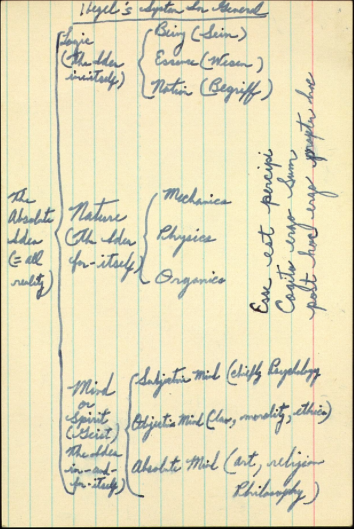
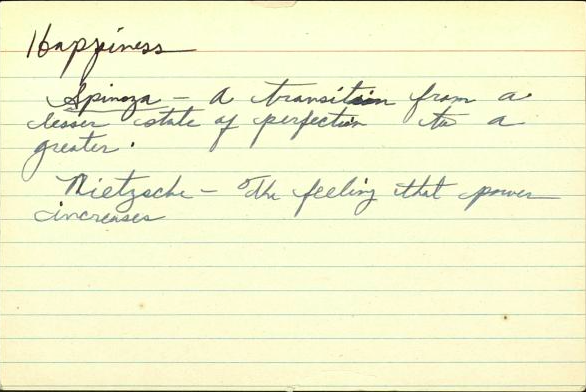
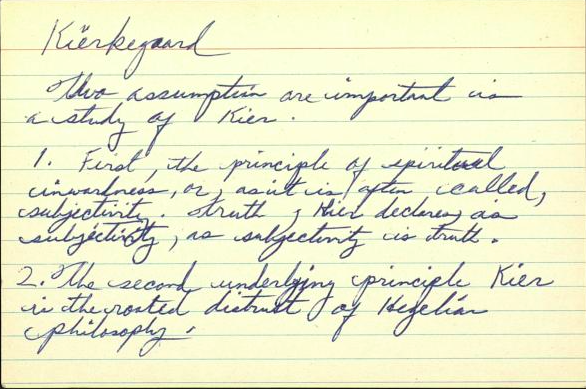
[H/T Ethicist for Hire, support him on Patreon]

